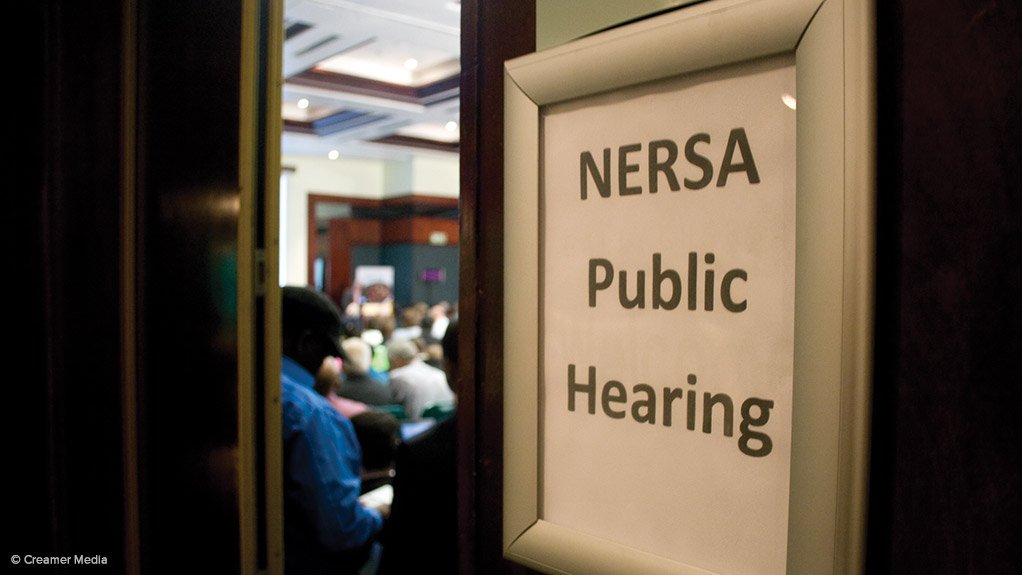- Eskom’s revenue application for 2018/192.46 MB
The National Energy Regulator of South Africa (Nersa) has outlined the process it will be following to assess Eskom’s request for a 19.9% tariff increase for the 2018/19 financial year, setting a deadline of October 13 for the submission of written comments.
Nersa has approved Eskom’s request to submit an application for only a single year once the third multiyear price determination (MYPD 3) cycle, which ran for five years, expires on March 31, 2018.
The regulator would host public hearings in all nine provinces between October 30 and November 16, with the first hearing scheduled for Cape Town and the last for Johannesburg.
No decision had yet been made as to how the regulator would deal with the State-owned utility’s three outstanding Regulatory Clearing Account (RCA) applications, through which Eskom is seeking to recoup revenue during the MYPD3 period of up to R60-billion. Any decision to adjudicate these applications could have a material bearing on the 2018/19 tariff adjustment, as well as on Eskom’s revenue application for 2018/19.
Nersa said that Eskom’s tariff submission had complied with the Energy Regulator’s July 27 decision, insisting that the application be produced in line with both the MYPD methodology, as well as Minimum Information Requirements for Electricity Tariff Applications.
Eskom’s acting CFO Calib Cassim said the utility was committed to participating in Nersa’s evaluation process and looked forward to further engagement on the revenue application with stakeholders.
A link to the consultation document had also been published on Nersa’s website, with Eskom confirming in the document that a 19.9% average increase would translate to a 27.5% municipal tariff adjustment on July 1, 2018.
The utility claims that the two major contributors to the price increase relate to a sales volume rebasing (9.4%) and growth in independent power producers (5.5%).
There are already signals that business and labour will resist this latest double-digit application, which follows a series of above-inflation tariff hikes since the start of South Africa’s power crisis in 2006.
In addition, there is growing anger over reports of governance breaches and inefficiencies at Eskom, which has emerged at the centre of allegations of so-called ‘State capture’ by a politically connected elite. These anxieties were aired by both business and labour leaders at the most recent National Economic Development and Labour Council summit, which took place earlier this month.
Business Unity South Africa VP Martin Kingston said organised business was concerned that the electricity utility might be approaching a sustainability “tipping point”, describing as a national priority the need for the social partners to offer collective input on a “more sustainable path” for Eskom.
“Governance breaches have significantly eroded the financial viability of Eskom and the tariff structure and long-term price trajectory appear to be unsustainable,” Kingston warned.
Likewise, Congress of South African Trade Unions general-secretary Bheki Ntshalintshali said Eskom was now regarded as a “symbol of corruption and chaos”.
“We have seen collusion, rigged tenders, vendor financing and massive price hikes at the same time,” Ntshalintshali said.
Meanwhile, the Energy Intensive Users Group of Southern Africa has warned that a price tipping point had already been breached for some firms and that further hikes could force electricity intensive firms to defect from the grid. Such defection could take the form of firms installing cheaper own- or cogeneration plants, or result in operations being moved to jurisdictions where power prices and the price path were more attractive.
EMAIL THIS ARTICLE SAVE THIS ARTICLE ARTICLE ENQUIRY
To subscribe email subscriptions@creamermedia.co.za or click here
To advertise email advertising@creamermedia.co.za or click here











